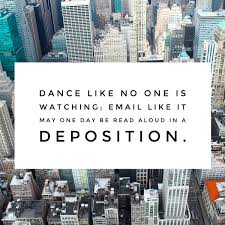
Posted on December 11th, 2016
Would you like to download this whole article as a PDF?
Most people with any common sense and a certain level of social awareness instinctively know what sexual harassment is.
But depending on the circumstances, some instances of sexual harassment claims can be trickier than others, especially in the workplace. What if the people involved are dating? What if the person is welcoming and encouraging the attention in the situation that an outsider, not knowing the details, might observe as sexual harassment?
Unwanted sexual advances, offering benefits in exchange for sexual favors, or unwanted physical touching; these are the types of behaviors that come to mind when we think of sexual harassment.
The keyword there is unwanted.
However, there are many more things that the law determines is sexual harassment that you might not be aware of, and in some cases might be unreasonably classified as such.
That is why it so important to understand the legal definition of sexual harassment.
Unfortunately, there are things you don’t know you just don’t know and that can be the most expensive business lessons. To give you an idea, on average, in California, sexual harassment cases cost employers $53,000.00 (not including the attorneys fees).
This article will discuss:
- The legal definition of sexual harassment;
- If you or one of your supervisors may be unknowingly violating sexual harassment laws; and
- The policies that you can implement to protect your business from both real and frivolous sexual harassment lawsuits.
What is Sexual Harassment?
Title VII of the Civil Rights Act is the primary federal law that prohibits sexual harassment. Additional laws are laid out in the California Code of Regulations (§ 11024, §12940, §12950) that specifically address California business practices in regards to harassment.
Sexual harassment is defined as harassment based on sex or of a sexual nature; gender harassment; and harassment based on pregnancy, childbirth, or related medical conditions and include such things as:
- Unwanted sexual advances
- Displaying sexually suggestive objects, pictures, cartoons, or posters
- Making or using derogatory comments, epithets, slurs, or jokes
- Sexual or graphic comments about an individual’s body
- Physical touching
California case law has interpreted the above to be sexual harassment in cases of extreme and obvious behaviors like promising promotions in exchange for sex and persistent sexual advances, to relatively innocent and benign things like the brush of a shoulder or a comment about a new hair cut.
sexual harassment defense attorney
Easy right? Just don’t act, think, or say anything of a sexual nature, right? Ha, ha, ha….Not in California…
Quid Pro Quo Harassment
Lets take a look at a common sexual harassment situation called quid pro quo. The term ‘quid pro quo’ literally means a “favor or advantage granted or expected for something in return”. In other words, if you do this sexual favor for me you will get something from me in return.
The key to this is, in the relationship between two people, one has power over the other; much like a supervisor or manager has over a subordinate.
As the owner of the business this would apply to your relationship with your employees. But it also typically applies to the managers and supervisors in your company that have employees working under them.
With quid pro quo sexual harassment there are two approaches Direct and Indirect. They mean what you would expect them to.
With Direct the supervisor may just come right out with ‘if you sleep with me you will get a promotion’ or something to that effect.
With Indirect the person does not come right out and say what they want but hints strongly. For example, “Maybe you should go out for drinks with me. I’m sure you could convince me of that raise you want after we have had a couple of drinks in us”.
Quid pro quo sexual harassment is almost always tied to job opportunities. The person is basically being promised advancement in their career for sexual favors.
Technology, You’re My Frienemy?

Before the wave of digital communication, these situations were mostly in person and were ‘i said/they said’ and maybe you could gather some witness to corroborate either side.
Today, almost all communication has an electronic trace either via email, text or voicemail.
Technology can prove to be your friend by possibly showing evidence of your innocence or could be your enemy and contribute to your downfall because almost all of that communication is data that is stored and can be accessed later.
Think about this: If an employee was trying to show a history of harassment by you or one of your supervisors what better way than a long list of emails and texts to prove it?
Have you or any of your supervisors ever….
- Kept inviting a coworker out for drinks, even though they repeatedly said No?
- Shared or forwarded a sexual cartoon or meme at work?
- Told or forwarded an off-color joke via email to employees?
- What about calling an employee “babe”, “doll” or “honey” on a voice mail message? (“Thanks hun, Ok babe”)
- Asked questions about an employee’s personal life? (“Are you married?, What kind of people do you date?”)
- Constantly commenting on an employee’s appearance? (“Nice dress, it really shows your curves!”)
These are all instances that are considered sexual harassment. To complicate matters, even if the comments or jokes were welcomed by the recipient, a “third party” can claim harassment if they are always overhearing it and feel uncomfortable.
If you have done some of these things and you do not personally consider them harassment you have to be careful.
You might say “Well I joke like that with all my employees” or “The person always seemed to being having fun and was never uncomfortable”. But when this is read in a deposition and it’s just your words jumping out on the screen none of that context will be there.
As an employer it’s essential to be aware of these lesser-known forms of harassment and to be aware that all electronic information can be used for or against you.
Policies To Avoid Sexual Harassment in the Workplace
Obviously no business sets out to create a hostile work environment. Unfortunately, the lack of legal clarity and shades of gray protocols makes it difficult for employers to totally prevent hostile (or perceived hostile) conditions.
Here’s what you can do to minimize this risk:
Training and education.
- This may take the form of company Webinars, online interactive courses, and in-person training.
- Training consists of courses that identify types of unlawful conduct, harassment, as well as prevention methods.
- Information provided to trainees will reinforce existing policies and minimize the likelihood of occurrences
Adopt a CLEAR policy.
- Create and distribute employee policies with clear and concise definitions
- Outline examples of policy violations
- Address, prevent and correct sexual harassment violations through formal and informal discipline, even if the act is not serious enough to be considered unlawful
Pay attention.
- Do not laugh at or encourage inappropriate jokes
- Be aware of subtle forms of sexual harassment
- Examine whether your verbal or nonverbal behavior will be interpreted negatively
Investigating Sexual Harassment
Sexual harassment cases can be very difficult and may put you in an uncomfortable position.
What if one of your supervisors is accused of this behavior? Since it is your company you are going to have to deal with this issue quickly and fairly.
You should not automatically assume that your supervisor is guilty of the behavior they are being accused of but you also want to make sure your policies are being followed, your fair to the employee making the accusation and you are minimizing your own risk.
You need to have a process setup to investigate these types of incidents that is fair and expedient.
Make sure your policies make it completely clear to all employees that:
If your company determines the Sexual Harassment Policy has been violated, it will take appropriate remedial action, which could include:
- Verbal Counseling
- Written discipline
- Termination
Again not EVERY SINGLE accusations of sexual harassment is true. In your Investigation Policy make it clear that employees who make false complaints or give false information will be disciplined appropriately.
Retaliation for Sexual Harassment Claims
Retaliation happens when actions are taken against the reporting employee to “punish” them for reporting it.
Retaliation against employees, especially in California is a BIG no-no and if it happens you are going to be facing even more problems than the original sexual harassment issues.
You have to make sure that everyone in your company, especially managers and supervisors are aware that retaliation will not be tolerated and you prohibit retaliation for reporting harassment/discrimination or for participating in investigations.
Conclusion
I hope you learned much more about sexual harassment and how you can avoid it. It can be not only one of the most expensive but also one of the more embarrassing conflicts an employer can have with an employee.
Just to wrap up here are some of the most important takeaways for employers to avoid these situations all together.
- Define what constitutes sexual harassment in your employee policies
- Make it clear to everyone who works for your company this behavior will not be tolerated
- Have an investigative procedure in place that is followed when these situations happen
- Further train your supervisors and managers NOT to use email/im to send anything inappropriate with co-workers
- Have an alternative dispute resolution (arbitration) agreement in place with ALL employees. If a sex harassment case does come up this could save you thousands and possibly your business!
Would you like to download this whole article as a PDF?
Click Here to Download PDF
If you have any questions about Sexual Harassment issues in your company please contact me and Id be happy to chat with you.
I offer a FREE 15 Minute consultation for any California Employer. Click here to schedule.
